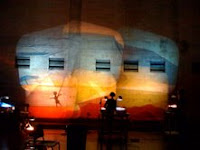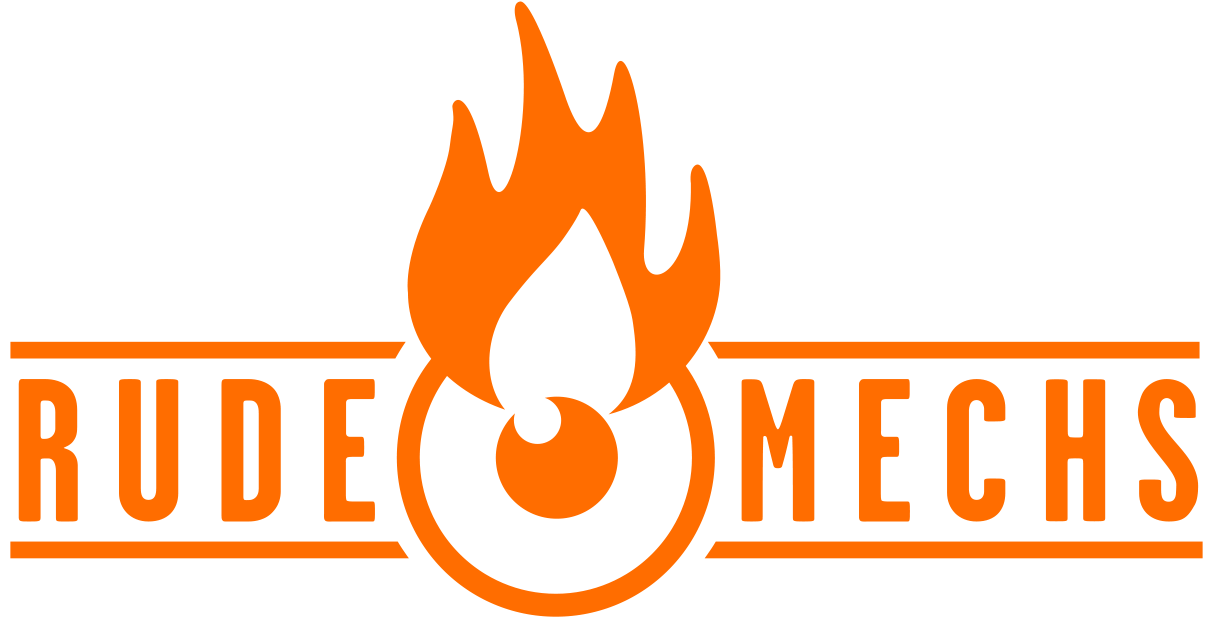A guest blog series by Christina Gutierrez, a Ph.D. student in Performance as Public Practice at UT Austin

This will be a blog about being tied to a mountain lion. And about the biggest knot in the whole world—a knot so big that there are cities tangled up in it. And about what happens when you combine a few Rude Mechs, 8 University of Texas at Austin students, 6 overhead projectors and some buckets full of watercolor paint and weird, tiny toys and puppets. And there’ll be some damn fine music in it too.
As the dramaturg for the latest workshop installment of I’ve Never Been So Happy, the Rude Mechs’ Western-themed carnival of a musical, I’ll be documenting our work on the piece and our experiments with the collaborative process. You can also catch a live video feed of the workshop from 1 to 6 p.m. Central, Monday-Friday.
Starting with the assumption that every idea can be a good one, and that the boundaries of traditional theatrical roles—acting, singing, dancing, writing, making music, directing, design, and dramaturgy—were made to be broken, we’ll be exploring the story of Jeremy Jessup, whose mother tied him to the last mountain lion in Texas to make him a man. Monday was the first day of the workshop, and we jumped headfirst into the West, spending an afternoon imagining and testing ways to bring the Texas desert onto the stage of UT’s B. Iden Payne theatre, where next Saturday’s work-in-progress showing will be held. Most of our work was on the first scene, in which Jeremy’s mother explains her plan to toughen him up. Co-director Lana Lesley and projection designer Erin Meyer are interested in the interaction between what they call the “virtuosic DIY” world of the projected puppets and landscapes and the live actors on stage. At the top of the show, the projections both reveal, and define Jeremy and Julie’s world. The shifting images on the screens let the audience see multiple perspectives at once and allow simple images, like coils of rope, completely consume the space of the theatre. Under the light of the projectors, the Payne house became a yellow and dusty desert space, a playground for the group of us interested in the difference (if there is one) between the authentic West and the portrayed West of TV and movies.

We created a giant Texan landscape on the Payne’s back wall, with a turquoise blue sky over red and yellow rolling hills and plains, across which we can track Jeremy’s (literal) growth from childhood to maturity. We projected a shadow of Erin’s silhouette over the house, making Julie Jessup loom over her son as she sets him on his journey. We used prisms to throw images of rope from the walls to the house to the floors, and came up with a way to show both the live and the shadow version of Jeremy pulled out his bedroom window by a huge coil of rope simultaneously.
I left the space yesterday after having my mind blown about six times. The process, like the projections, is turning the art making process upside down. And sideways. And inside out and backwards. Time to grab a piece of rope and hang on for the ride.
